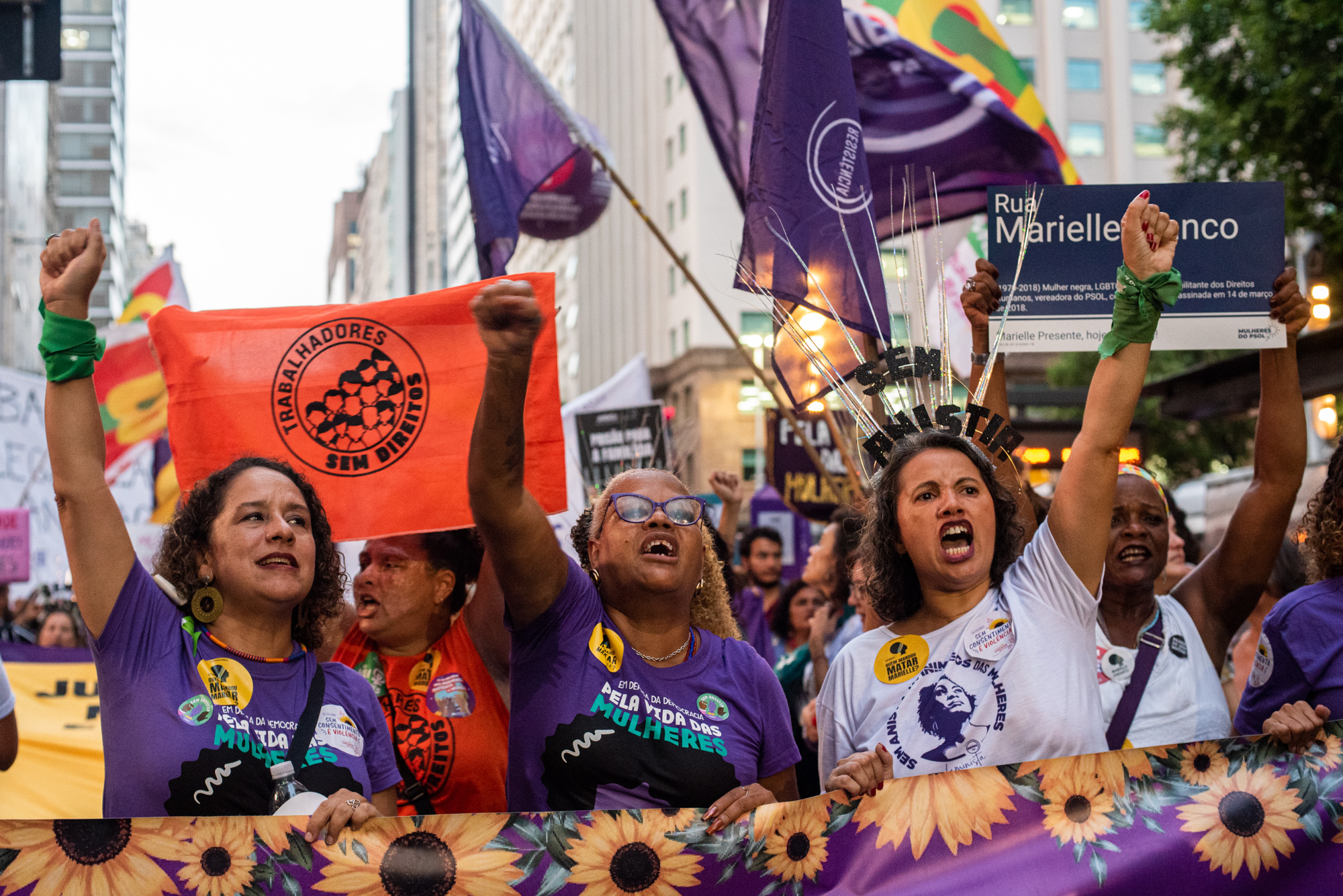
Every year on March 8, the International Women’s Day March, 8M RJ, takes place in downtown Rio de Janeiro. The event starts at the Candelaria Church and marches to Cinelândia.
Feminist collectives, social movements, unions, and women from different sectors of society take to the streets to march against patriarchy, the system perpetuating gender inequality and women’s oppression. The call-out for organizing the event is always publicized on social media, with defined places and times, where any woman can participate in the plenary sessions for the march’s planning. This year, the call was “Women in the streets in defense of democracy! No amnesty! No more femicide and violence against women! For jobs and income, for the legalization of abortion, and an end to hunger! In defense of education and public health!”
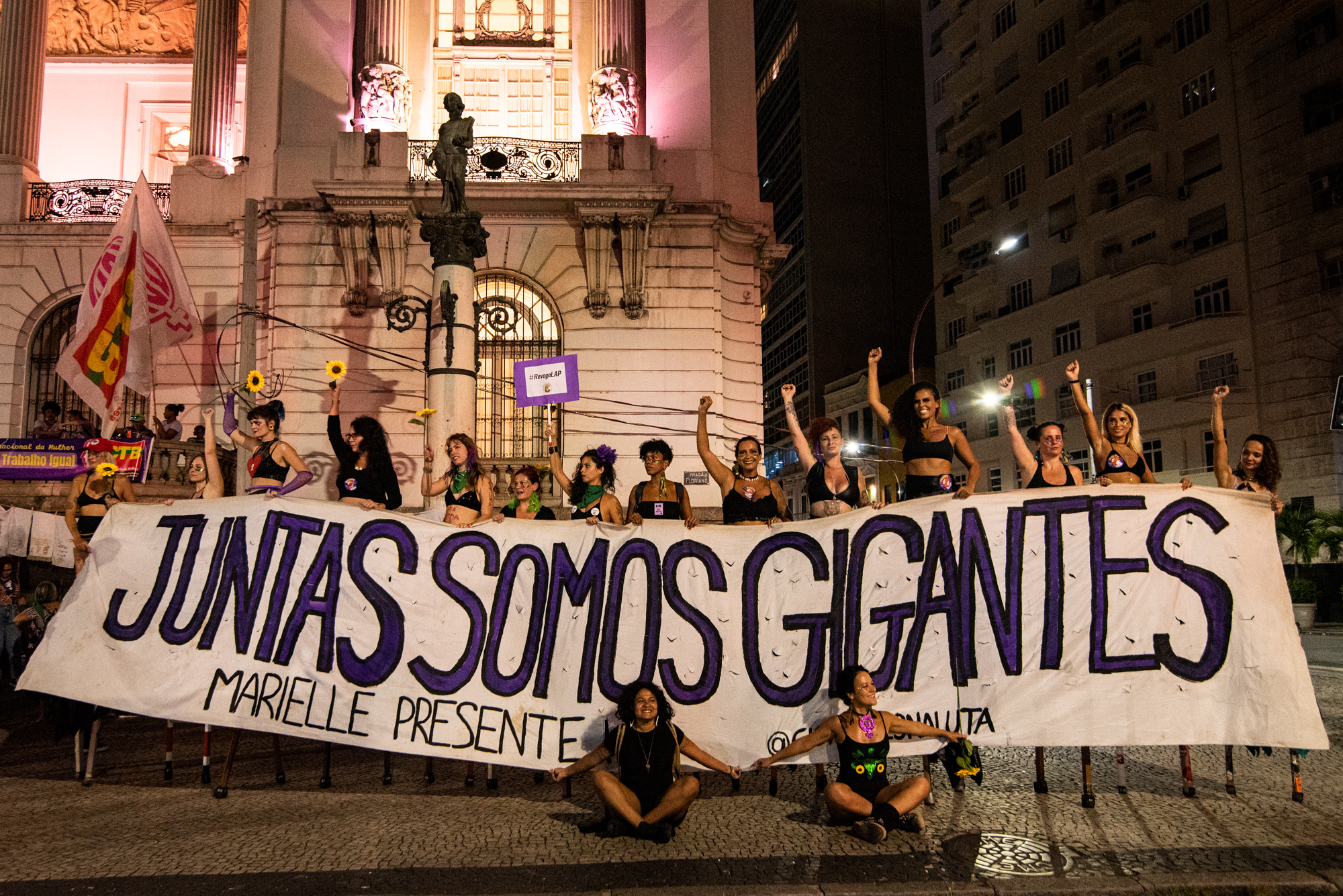
However, despite their unity, each woman who participates in the Women’s March has her own struggles. Each person experiences different oppressions, arising from their race, social class, place of origin or residence, in addition to their own subjectivities and life stories. In the book What Is Locus of Speech?, philosopher Djamila Ribeiro warns that the “insistence on talking about women as universal, not registering existing differences, means that only part of being a woman is seen.” The 2023 8M March in Rio de Janeiro was built with the united voices and diversity of women.
Potyra Guajajara-Krikati, Aldeia Maracanã Leader
Potyra Guajajara-Krikati, representative of indigenous peoples and participant in the Aldeia Maracanã occupation, was the first to share her reflections.
“I would like to pay homage to all warrior women, and may our fight be for a bigger and better future for children, the elderly, and for us women, for us, indigenous women… It is very important that we give this support to mothers and children, who are the future. We also have to overcome this prejudice and all the racism that exists against us, indigenous peoples.” — Potyra Guajajara-Krikati
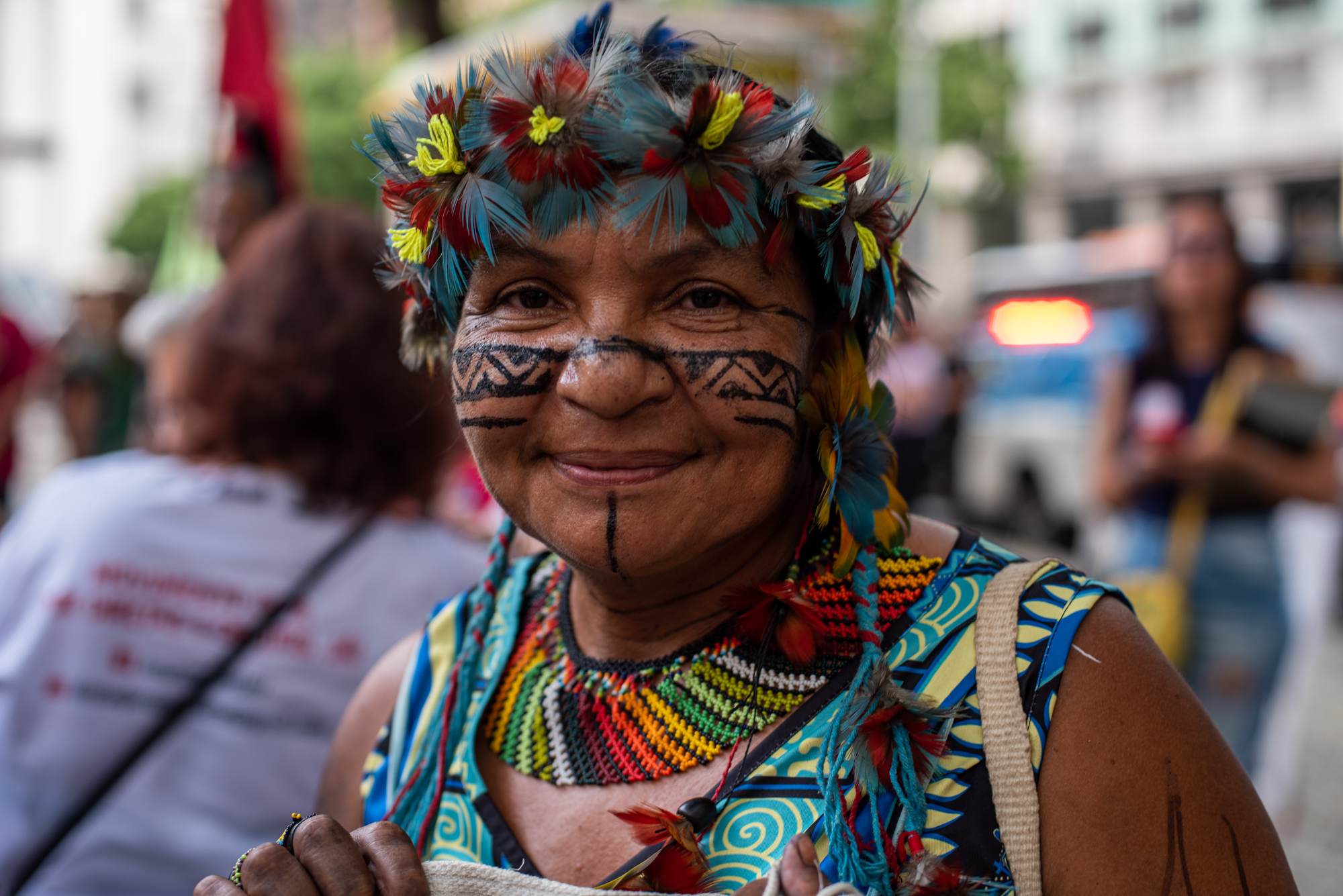
Maria do Nascimento, Public School Teacher and Unionist
Many working women were present at the 8M March, including Maria do Nascimento, a public school teacher and member of the Rio de Janeiro State Education Professionals Union (SEPE). She held a banner that read “Black Women: The Most Oppressed” and a small sign with the phrase “Fight Like a Woman.” Maria shared a bit about her struggle.
“I am a teacher, I am a 56-year-old Black woman from the [Brazilian] Northeast. We Black women suffer three times more femicide and discrimination because of our color and social class. It’s a moment where we need to be together, united by those who came before us and died. This fight cannot be in vain. Brazilian women are among those who suffer the most from sexism, so today is about coming together with all my companions to give visibility to this very important fight.” — Maria do Nascimento
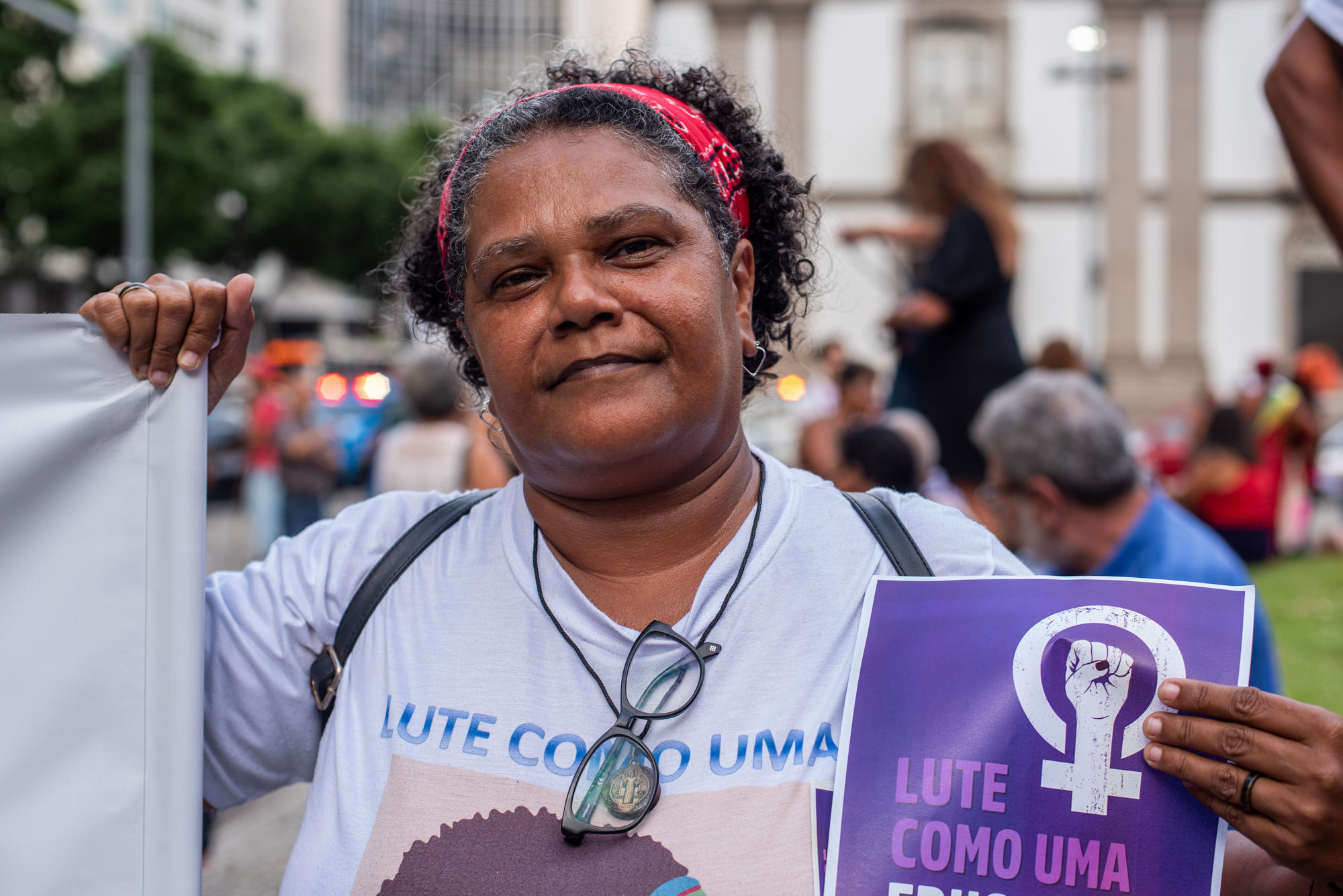
Fátima Pinho, Mother of a Victim of State Violence
Fátima Pinho is a member of the Mothers of Manguinhos movement, a collective of mothers and relatives of victims of State violence. She spoke about the importance of being at the Women’s March, occupying this space.
“It’s a way to empower women because every day is women’s day. The fight against femicide is a huge battle. So, we’re here to join together, to put a stop to this too. With women screaming, we are stronger! It is an immense pleasure to be here, with other women from other movements, and it is very important for us from the Mothers of Manguinhos Movement, who represent the struggle of women against State [police] violence, to be here. And this is it, women taking the streets, always!” — Fátima Pinho
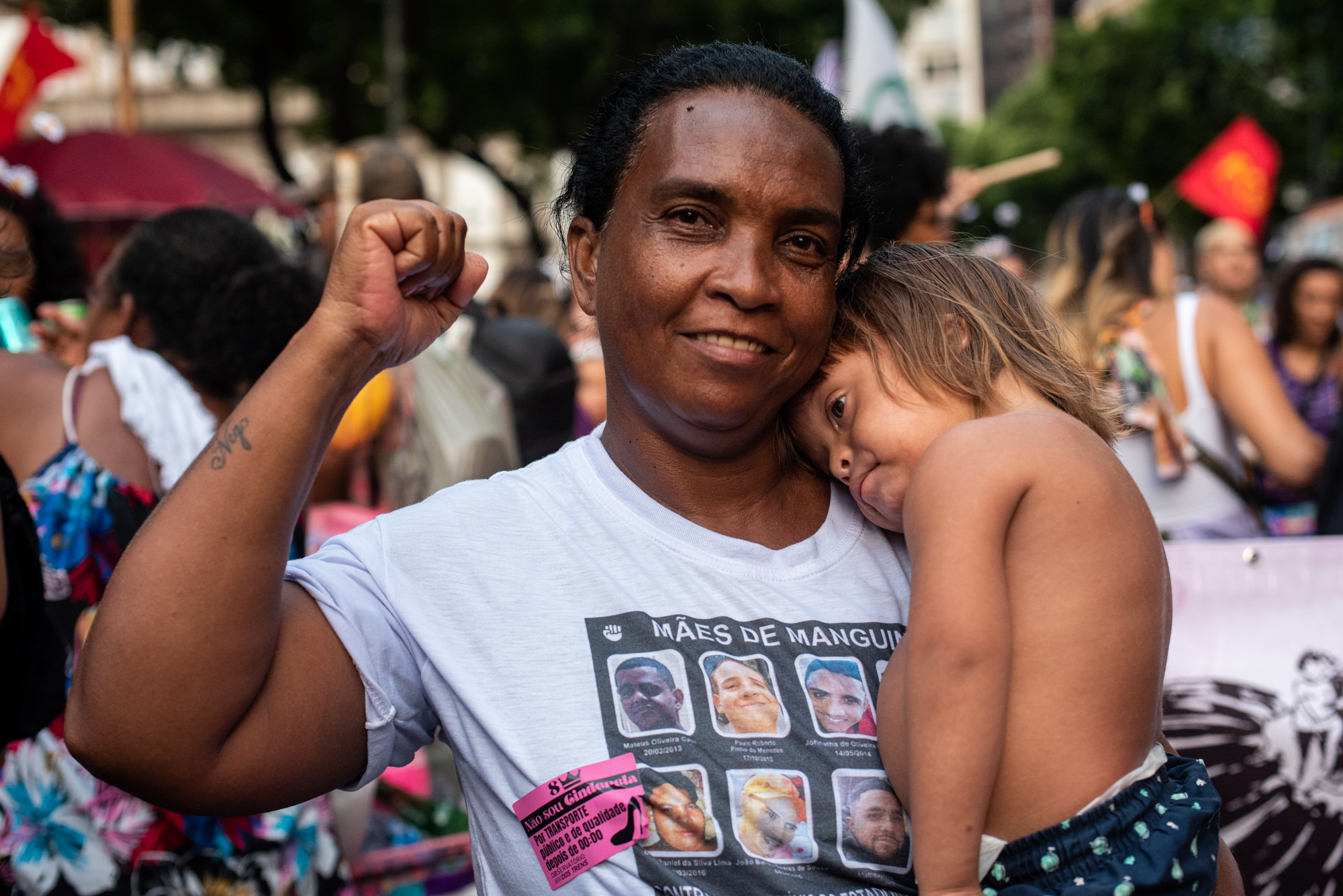
Maria dos Camelôs, Street Vendor and Class Leader
With one clenched fist and the other waving the yellow flag of the United Street Vendors Movement (MUCA), there was Maria de Lourdes do Carmo, better known as Maria dos Camelôs, leader of the fight and in defense of street vendors. Activist and street vendor for 25 years, she shared a bit about her life experience and the importance of her work for conquering her independence.
“It’s very important for us to be here today so that we are recognized as workers… We know that we are talking about violence against women. Women street vendors take to the streets!… I, for example, got out of my relationship because I was beaten by my ex-husband, the father of my children, and I went to the streets to get out of that abusive relationship and earn money to raise my children [independently]. So, you see many women, single mothers, who are here on the street working, and we need these women to be recognized as workers. We talk about violence against women, but [we cannot forget that] women who work in street vending suffer violence every day [by men] from the Municipal Guard and by Mayor [Eduardo Paes].” — Maria dos Camelôs
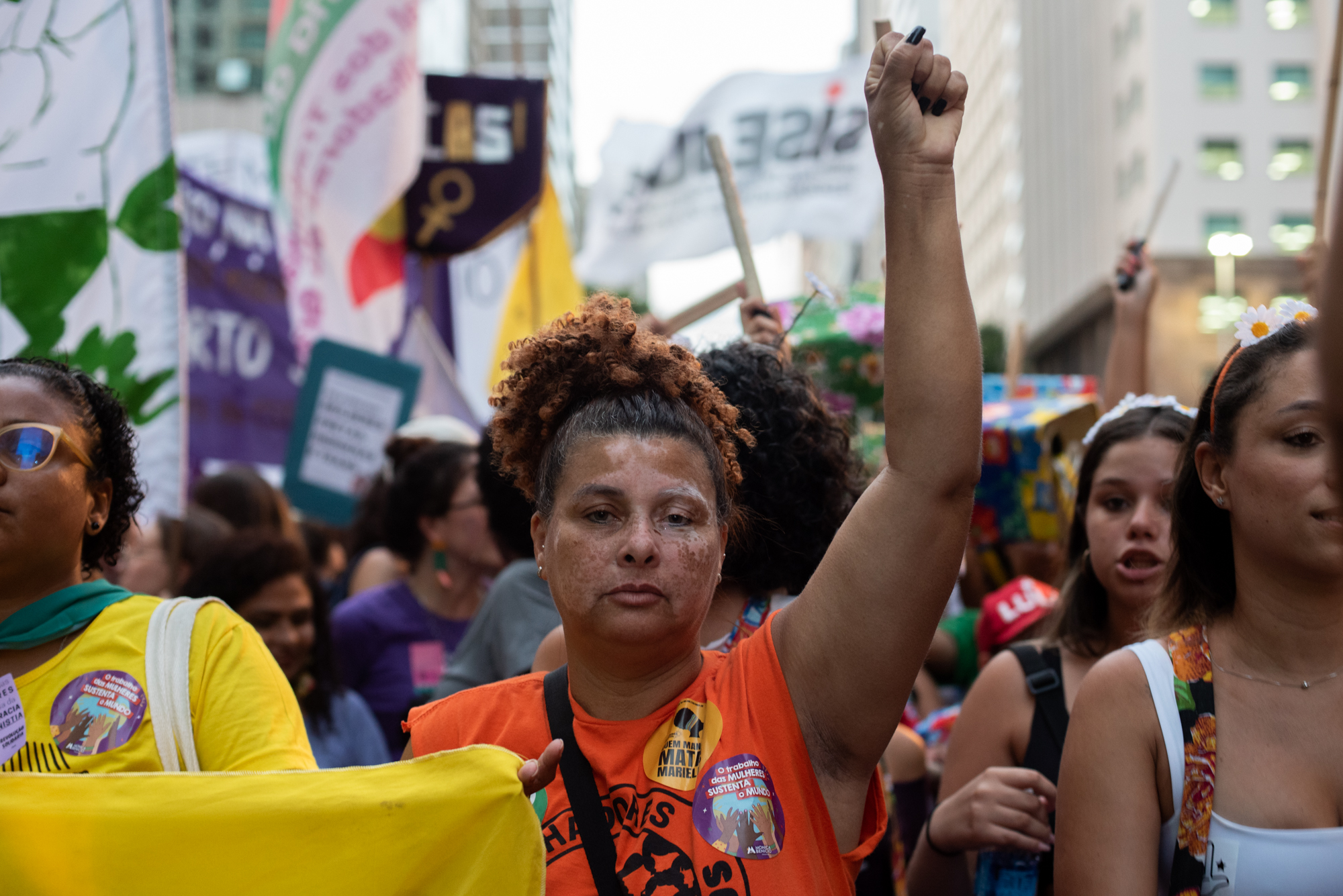
Luciene Lacerda, Psychologist, Educator, and Anti-Racist Feminist
Luciene Lacerda, creator and coordinator of the 21 Days Against Racism campaign, clearly outlined the demands of a Black woman during her speech at the International Women’s Day March.
“So, I’m here today mainly to remind us of some special points. We, Black women, make up 28% of the Brazilian population. We are the largest single group in the country and we are not present in certain spaces, such as the Supreme Court. We aren’t representative within the public administration, within legal or management spaces. On the other hand, we are first in some very sad things: we are leaders in maternal mortality, we are among the lowest paid, and we are those who have least access to daycare centers. Even when there is public daycare, the number of spots is absolutely insufficient.
The fight over the issue of abortion is essential. However, the issue of decriminalization alone doesn’t affect us. Because it means that, even if it ceases to be a crime, it will not be public, it will not be available through the Public Health System (SUS). So this means Black women will continue to die. Women need to be cared for, they need to have the right to work and to live. In addition to all this, we are at the top of the list of femicides. So being here at 8M is fighting for women, but fighting with the understanding that not all women are represented here in these spaces of struggle. This needs to change.” — Luciene Lacerda
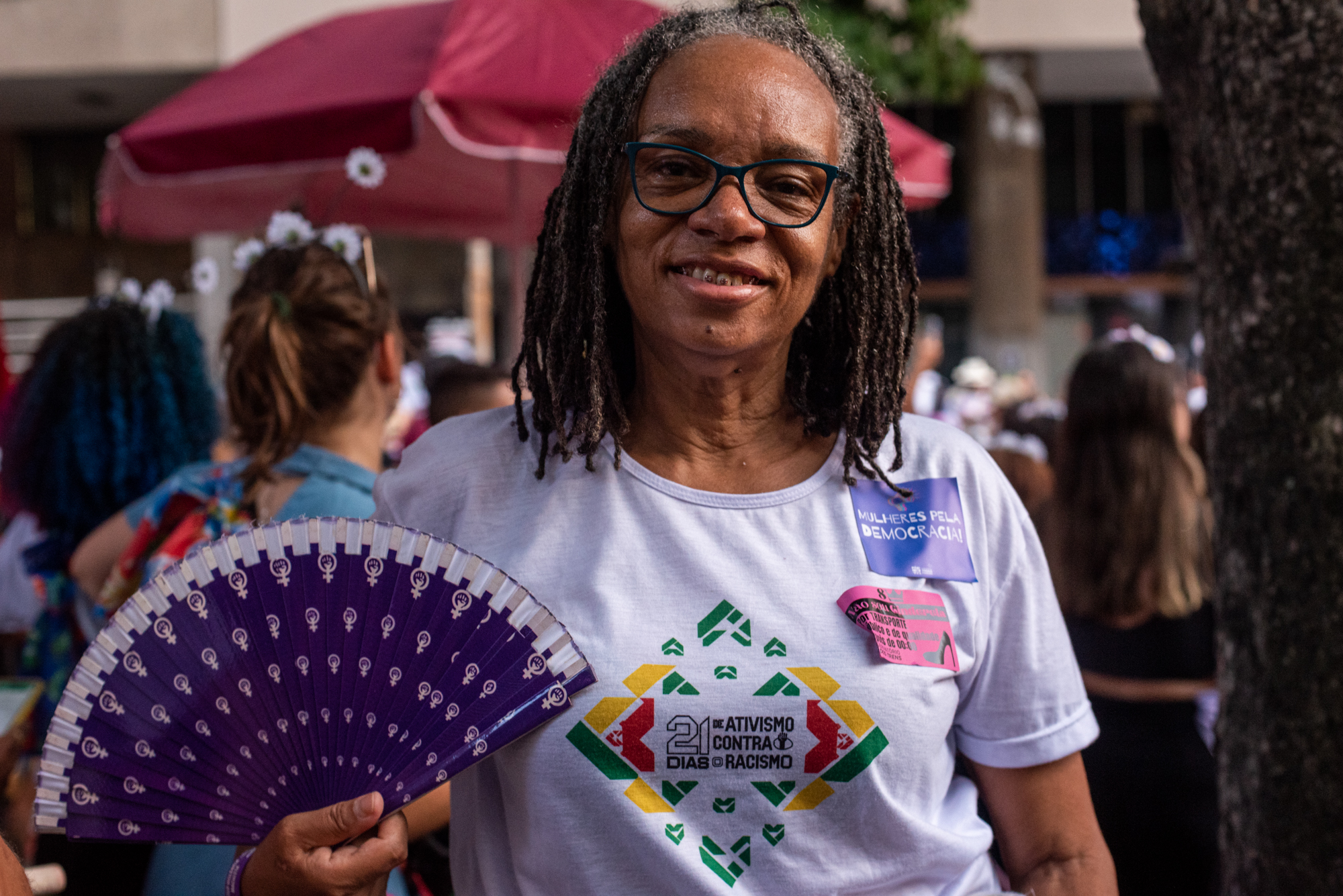
It’s for Women’s Lives
The struggle is for women’s and society’s engagement for women’s lives, the fight against femicide, gendered political violence, the wage gap, and racism that perversely affects Black women, in search of autonomy over our bodies, and for the legalization of safe, legal abortion offered by SUS. Councilor Marielle Franco, in a speech given on March 8, 2017, summarized that as women “we are diverse, but not divided.” It is in this diversity, pointed out by Marielle, that the power of the women’s movement lies.
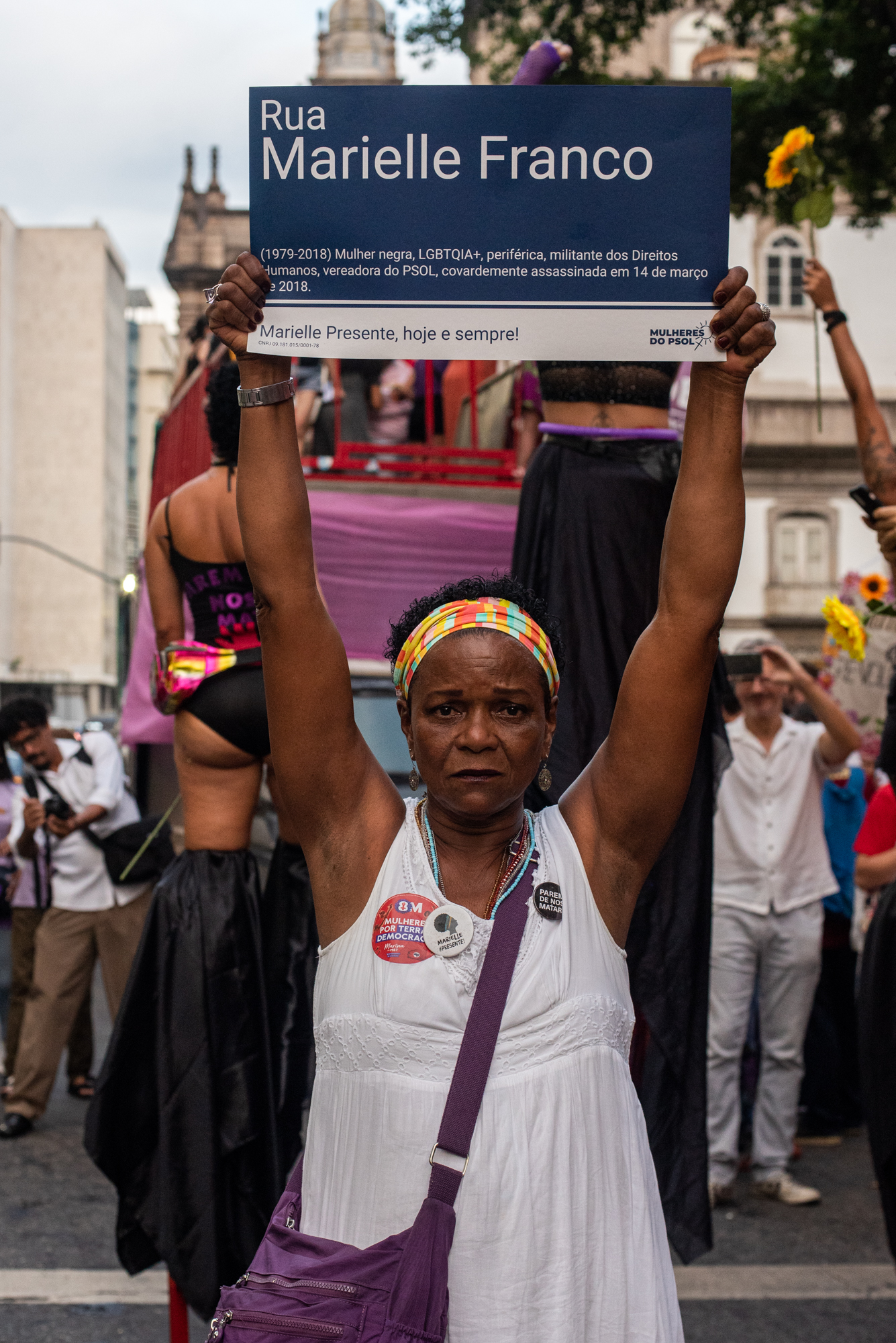
Not only on March 8 but every day of the year, let us be attentive to all women’s voices, which together set the tone for building a more egalitarian future.
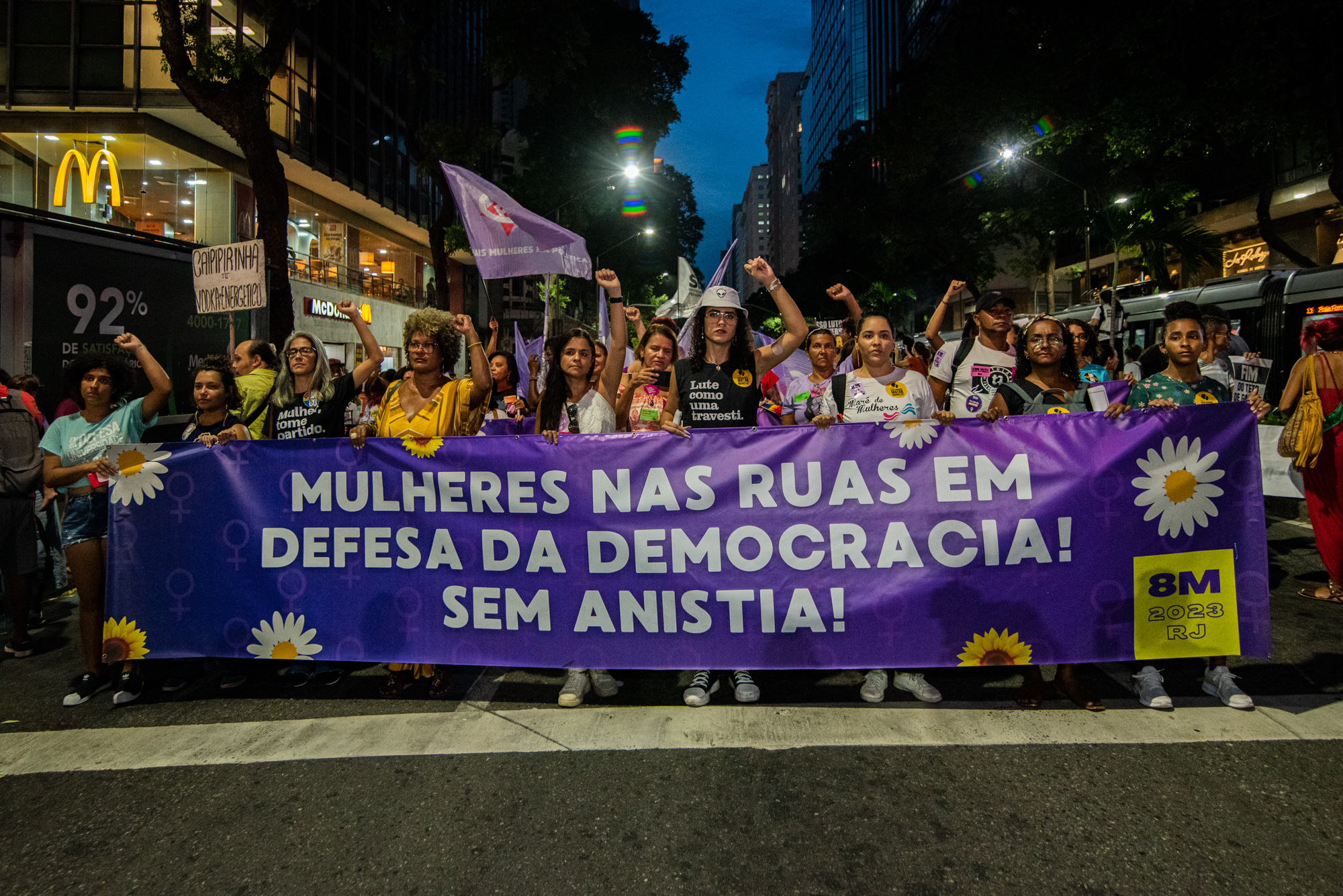
About the author: Bárbara Dias was born and raised in Bangu, in Rio’s West Zone. She has a degree in Biological Sciences, a master’s in Environmental Education, and has been a public school teacher since 2006. She is a photojournalist and also works with documentary photography. She is a popular communicator for Núcleo Piratininga de Comunicação (NPC) and co-founder of Coletivo Fotoguerrilha.
